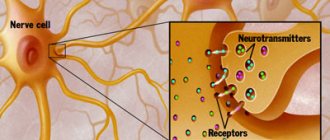There is no need to say much about the benefits of a good night's rest, which is an important component of the life of any individual. A person tired during the day dreams of getting home as quickly as possible and, having said hello to his soft pillow, finds himself in the kingdom of Morpheus.
Sleep is our adaptation to the real world. Thanks to sleep, our internal resources and the strength spent during the day are restored, and mental, physical and emotional performance is maintained at the proper level. A person who has no problems with sleep at night feels rested in the morning and is completely ready to conquer new heights.
Sleep consists of several phases and stages of electrical activity in our brain, which clearly and consistently replace each other. Surprisingly, only developed warm-blooded animals (mammals, birds) are able to sleep the way people do.
Deep sleep, which is one of the stages of slow-wave sleep, is responsible for the recovery processes occurring in the body during a night's rest. What is deep sleep? What changes occur in the human body during deep sleep? How long should deep sleep last and can it be increased? Today we will discuss these and other important issues regarding deep sleep and its effect on our body.
Deep sleep: what is it?
Deep sleep (“slow wave sleep”, “delta sleep”, “orthodox sleep”) is a stage of slow sleep, during which certain recovery processes occur in the body. Each person has his own individual version of deep sleep, which is formed on the basis of the following data: general health, level of mental and physical fatigue, weight, age, gender, presence/absence of bad habits, etc.
During deep sleep, brain activity slows down significantly and the level of muscle activity decreases. A sleeping person does not react to odors and other external stimuli. Recently, scientists were able to prove that during deep sleep our brain does not turn off completely, as previously stated, but is engaged in processing information that it received throughout the day.
How can you determine that a sleeping person is in deep sleep? This can be done using an electroencephalogram and delta waves, which will be released on it during deep sleep. Delta waves, which arise due to the special activity of our brain, are somewhat reminiscent of the slow and calm waves of the ocean that immerse a sleeping person in a magical world of dreams.
How does deep sleep affect how you feel after waking up?
The more the sleeper is in a state of deep sleep during the night's rest, the better and healthier he feels after waking up. A person who does not experience any problems with the duration of this phase of sleep, the level of physical endurance and mental activity increases noticeably. Such an individual feels full of strength and energy throughout the day, he quickly and efficiently solves the tasks assigned to him, and does not experience any difficulties with orientation in time and space.
A lack of deep sleep negatively affects immunity, nervous system function, concentration, coordination and appearance. An individual who did not fully rest at night looks tired and broken in the morning, has a rumpled appearance, gets tired quickly, and cannot concentrate his attention on the tasks assigned to him. For such a person, the risk of catching an infectious or cold disease increases several times!
Many people who have problems with deep sleep develop apnea syndrome (during sleep, breathing stops for several tens of seconds). If a person regularly experiences a lack of deep sleep, then he experiences serious disruptions in the functioning of the endocrine system. The body stops producing growth hormone. This can cause the development of obesity in people who have problems with excess weight.
Deep sleep is also characterized by manifestations of sleepwalking, nightmares and other mental disorders. In such cases, waking up a person during deep sleep is strictly prohibited, otherwise it will negatively affect his well-being and will only worsen his mental disorder.
Medicines to improve sleep quality
It is necessary to get enough sleep from both physiological and psychological points of view. A couple of sleepless nights due to jet lag or important life events is not a cause for concern.
But if problems with falling asleep and frequent awakenings occur more than three times a week for a month, a person needs help. A good place to start is by improving hygiene. When it becomes obvious that these measures do not help, you will have to resort to medication.
It is better to take medications under the supervision of a doctor. To select them correctly, it is important to determine:
- cause of insomnia;
- her character;
- the required duration of action of the drug.
Sleeping pills provide quality deep sleep by suppressing interneuronal transmission. They also calm the nervous system and relax muscles.
Duration of deep sleep
The duration of deep sleep varies for each person, because it directly depends on the individual characteristics of the body. For one individual, 4-5 hours of sleep is enough to fully rest and wake up refreshed, while for another, 8-9 hours is not enough so as not to feel exhausted and squeezed like a lemon in the morning.
Deep sleep lasts longer for a person who has just fallen asleep than for a person who needs to wake up soon. In the first cycle, slow-wave sleep takes about 80-100 minutes, in subsequent cycles its duration decreases.
Scientists say that deep sleep in an average adult should occupy from 30% to 70% of the entire night's rest. Each person has their own biological rhythms, so it is impossible to name the exact time for a specific person.
Thanks to experimental work, scientists were able to determine average time indicators.
- People under 30 years old need 120 minutes of deep sleep for proper rest.
- people from 35 to 60 years old – 80-85 minutes,
- people over 60 years old – 75-80 minutes.
Symptoms of insomnia
Normally, a person goes to bed and falls asleep within half an hour. If you cannot fall asleep during this period of time, we are talking about presomnia disorders - there is reason to suspect insomnia. Intrasomnia disorders occur if a person wakes up in the middle of the night. However, if he opened his eyes for a minute and fell asleep again, this is not considered a pathology.
Post-somnia symptoms (associated with awakening) are the most difficult to recognize. From a scientific point of view, we can talk about them if a person wakes up 30 or more minutes earlier than he should. But when he should do this is also a question, because opportunities do not always coincide with needs.
It is impossible to definitively diagnose “insomnia” based on how long the patient sleeps. Although a duration of less than 6.5 hours is considered a deviation, the needs of the body cannot be ignored. For some, 5 hours is enough to recover.
What happens to the body during deep sleep?
During deep sleep, energy accumulates in the human body and new cellular structures are formed. These processes, which are restorative in nature, take place in the body only when it is at rest. If a person has certain problems with this stage of sleep, then his body does not fully recover, which negatively affects the well-being of such an individual.
During delta sleep, consciousness completely switches off, breathing becomes arrhythmic, shallow and rare, heart rate quickens, and the galvanic skin response noticeably increases.
If you wake up a person during deep sleep, he will not remember anything and will say that he did not see any dreams, did not feel anything, and did not have and do not have any thoughts in his head.
Light sleep and insomnia – where is the line?
The causes of light sleep and insomnia overlap. And in general, it is not always clear how to distinguish these two conditions from each other... Light sleep leads to awakenings in the middle of the night, insomnia too. But they have a fairly clear criterion for distinction.
If a light sleeper gets a good night's sleep under ideal sleep conditions, then he is healthy. If he feels tired and drowsy the next morning, then his condition should be interpreted as insomnia.
When a person has had shallow sleep for as long as he can remember, this problem does not require seeing a doctor and treatment. When increased sensitivity to sleep has recently begun to bother a person, he should be more attentive to himself: over time, this can develop into insomnia.
How to increase the duration of deep sleep?
There are many ways to increase the duration of this stage of sleep. Let's look at the most effective of them.
Method No. 1. Reconsider your lifestyle
A sedentary and sedentary lifestyle negatively affects the quality of sleep. To make deep sleep last longer, start taking care of yourself: give up alcoholic drinks, cigarettes, fatty, spicy, sweet and high-calorie foods, exercise regularly, spend more time in the fresh air, ventilate the bedroom before bed.
Very often, sources of noise and other distractions prevent us from fully resting. If you live in a noisy place and you have no way to influence the noise level, then buy earplugs.
Method No. 2. Get rid of bright light sources
Bright light sources negatively affect the quality of sleep. TVs, computers, smartphones, tablets and other gadgets have become a part of our lives. But if you want to increase the duration of delta sleep so that you feel alert and rested in the morning, then at least 1.5-2 hours before going to bed, get rid of these sources of bright light.
Are you used to falling asleep with your phone or tablet in your hands? Can't sleep without TV? Give up these bad habits, otherwise your body will not be able to fully prepare for a night's rest.
Method number 3. Go to bed at the same time every night
Experts recommend that people who want to increase the duration of deep sleep should fall asleep at the same time. Train yourself to go to bed at the same time on weekdays and weekends.
Once you get used to the regime, you will be surprised to notice that your sleep problems have disappeared without a trace! People who have learned to go to the kingdom of Morpheus at the same time note that now in the morning they feel much better and more energetic than when they did not have such a habit.
Method number 4. Avoid late dinners and workouts
Life in the modern world dictates its own conditions and not always throughout the day we have the opportunity to eat normally or go to the gym. But it has long been proven that late dinners and going to the gym after work negatively affect the duration of deep sleep.
In order for your body to fully rest and recover at night, you should not actively exercise before bed or overeat at night. Therefore, avoid training and high-calorie foods 2-3 hours before going to bed.
Method No. 5. Introduce magnesium-containing foods into your diet
Magnesium not only normalizes the functioning of the nervous system and helps the body produce energy, but also has a positive effect on the duration and quality of deep sleep. Therefore, be sure to include plant foods in your diet that contain this beneficial microelement.
Nutritionists advise eating wheat bran, beans, walnuts, spinach, pumpkin seeds, almonds, peanuts, dried dates, sesame seeds, because these foods contain large quantities of magnesium.
Method number 6. Do not be nervous
The funny saying that all diseases arise from nerves, and some from love, is not as far from the truth as we would like it to be. The more nervous and worried we are, the more negatively this affects not only our general health, but also the quality of deep sleep.
How can you reduce the amount of stress if you have to live not in a good fairy tale, but in a reality that is far from perfect? This can be done through meditation. Meditation practices help not only calm the mind and organize the senses, but also increase the duration of deep sleep.
Treatment
Depending on the cause of the sleep disorder, treatment is prescribed by a neurologist. In case of somatic pathology, therapy is directed to the underlying disease. The reduction in sleep depth, as well as its duration, which occurs in older people, is a natural process and often only requires explanatory consultation with the patient. Before resorting to sleeping pills, it is recommended to monitor compliance with the basic principles of healthy sleep: do not go to bed in a state of agitation or anger, do not eat before bed, do not drink alcoholic beverages, strong tea, coffee at night, do not fall asleep during the day, do not forget about exercise exercise, but do not exercise at night, keep the bedroom clean. Patients who have sleep disturbances are advised to go to bed and wake up at the same time every day. If you can’t fall asleep within 30-40 minutes, you need to get up and keep yourself busy until sleep appears. Evening relaxing treatments will be useful: a warm bath or a walk. Psychotherapy and various calming techniques often help solve problems of disturbed sleep.
In the drug treatment of sleep disorders, benzodiazeline drugs are often used. Tablets with a short period of action - triazolam, midazolam - are prescribed when the process of falling asleep is disrupted. However, their use is often accompanied by adverse reactions: confusion, agitation, morning sleep disturbance, amnesia. Long-acting sleeping pills - diazelam, chlordiazepoxide, flurazelam - are used for frequent night or early morning awakenings. But they often cause daytime sleepiness. In such situations, they resort to drugs with an intermediate period of effect - zolpidem and zopiclone. These drugs have a lower risk of developing dependence or tolerance.
Another group of drugs that are used for sleep disorders are antidepressants: doxelin, amitriptyline, mianserin. They are not addictive and are suitable for elderly patients, patients who are depressed or suffer from chronic pain syndrome. However, due to the large number of side effects, its use is limited.
If the case is severe and the drugs could not give the required result, then they resort to antipsychotics that have a sedative effect: chlorprothixene, levomepromazine, promethazine. When mild pathological drowsiness is diagnosed, weak central nervous system stimulants are prescribed: ascorbic and glutamic acid, calcium-containing drugs. When the disturbances are pronounced - psychotonics: imipramine, iproniazid.










